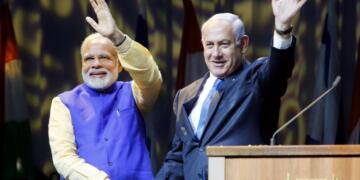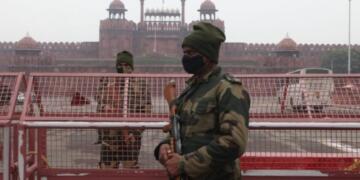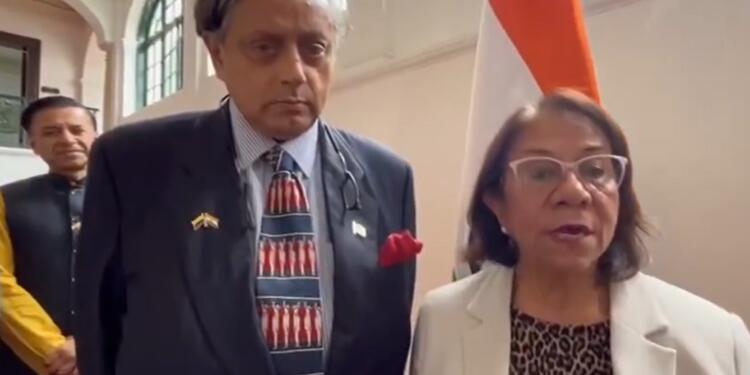Colombia has officially retracted a statement that had mistakenly expressed condolences for those killed in Pakistan during India’s counter-terror operation, ‘Operation Sindoor’. This clarification came during a meeting between Colombia’s Vice Minister of Foreign Affairs, Rosa Yolanda Villavicencio, and an Indian Parliamentary delegation led by Congress MP Shashi Tharoor.
“The Vice Minister graciously informed us that the earlier statement, which had caused concern, has been withdrawn,” Tharoor told reporters following the meeting on Friday. “She assured us that Colombia fully understands India’s perspective on the matter, which we greatly appreciate.”
Tharoor had earlier criticized Colombia’s original statement, saying it appeared to equate the terrorists neutralized by Indian forces with innocent victims of a brutal terror attack in Pahalgam, Jammu and Kashmir.
Speaking alongside Tharoor, Villavicencio said, “With the detailed information we’ve received today about what actually transpired in Kashmir, we are now in a position to better understand the situation and continue a constructive dialogue.”
Colombia’s prompt and positive response holds significance, especially as it is expected to take up a seat on the United Nations Security Council next year. The country is currently the sole candidate for the Latin American seat in the upcoming election.
Addressing Colombian media on Thursday, Tharoor had said, “India was somewhat disappointed by the initial reaction from the Colombian government, which seemed to express heartfelt condolences over the loss of lives in Pakistan following Indian strikes—rather than recognizing the victims of terrorism in Jammu and Kashmir.”
Rather than reacting defensively, Colombian officials took India’s concerns seriously and acted swiftly to rectify the situation. On Thursday, former President César Gaviria Trujillo, a senior figure in Colombia’s largest political party, also voiced support for India, stating, “Colombia stands in solidarity with India. We oppose terrorism in all forms, and under any circumstances, we will be on your side.”
The Indian delegation has worked to foster a more nuanced understanding of the terror attack in Pahalgam carried out by The Resistance Front, a Pakistan-based group affiliated with Lashkar-e-Taiba, and India’s calibrated response through ‘Operation Sindoor‘.
BJP MP Tejasvi Surya noted on social media that during Friday’s meeting, the delegation briefed Vice Minister Villavicencio on the full sequence of events — from the terror attack in Pahalgam to India’s military response.
The Indian MPs also met with members of Colombia’s Congress, including Alejandro Toro, President of the Second Commission of the Chamber of Representatives — the committee responsible for foreign affairs — and Congressman Jaime Raul. During their visit, Tharoor was gifted a traditional wool poncho and a Colombian hat, which he shared about on social media.
The delegation also engaged in a wide-ranging discussion with Colombia’s top foreign policy think tank, the Consejo Colombiano de Relaciones Internacionales (CORI), according to the Indian Embassy in Bogotá. They visited Tadeo University as well and paid tribute to Mahatma Gandhi at his statue on campus.
The multiparty Indian delegation is led by Shashi Tharoor and includes representatives from across the political spectrum: Tejasvi Surya (BJP), Shambhavi (Lok Janshakti Party – Ram Vilas), Sarfaraz Ahmad (Jharkhand Mukti Morcha), Milind Murli Deora (Shiv Sena), Shashank Mani Tripathi and Bhubaneswar Kalita (BJP), and GM Harish Balayogi (Telugu Desam Party).
Before arriving in Colombia, the delegation visited Guyana and Panama—both current non-permanent members of the Security Council—and will next travel to Brazil, a close partner in the push for UN Security Council reform. Their final stop will be in Washington, D.C. next week.
Operation Sindoor was a carefully planned counter-terrorism operation launched by Indian security forces in direct response to the brutal attack in Pahalgam, Jammu and Kashmir. The attack, which shocked the nation, was carried out by The Resistance Front (TRF), a Pakistan-based militant outfit known to be an affiliate of Lashkar-e-Taiba.
In the wake of the violence, India’s security agencies acted swiftly and decisively. Operation Sindoor focused on neutralizing the terrorists responsible for the attack and targeting their hideouts, some of which were reportedly supported and sheltered across the Line of Control. The mission was intelligence-driven, aiming for precision strikes that minimized civilian harm while ensuring key terrorist operatives were eliminated.
The operation sent a strong and clear message about India’s zero-tolerance approach to cross-border terrorism. It also underscored the country’s commitment to protecting its citizens and responding firmly to any threat to national security.
The name “Sindoor,” which traditionally symbolizes protection and sanctity in Indian culture, was deliberately chosen to reflect the deeper purpose behind the mission—defending the nation’s integrity and honoring the lives lost to terror.
























